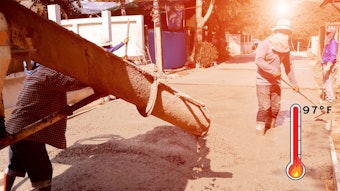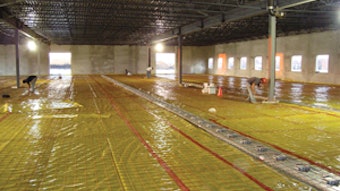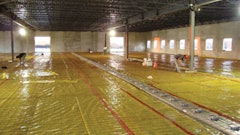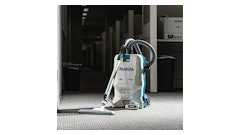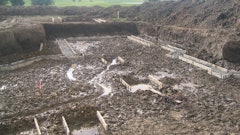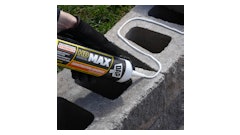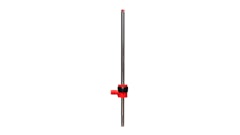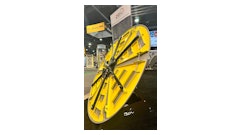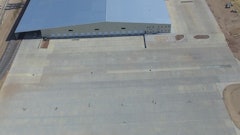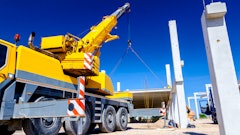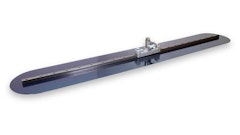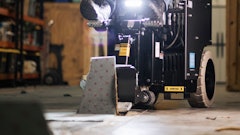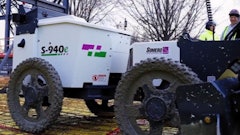
Used equipment can represent an excellent value for companies in any industry. In the concrete industry, this is particularly true as the cost of heavy equipment like agitator trucks and concrete pumping trucks can be quite high. Being that used equipment is popular, I’d like to discuss an uncommon-but-real issue that could crop up when buying any type of used equipment, and that’s buying equipment that unknowingly has a lien on it. Because that could have serious ramifications.
Here’s an example of what could happen: imagine you want to add a used agitator truck to your fleet. You look around and find one another company is selling. You go see it, it’s in great shape, and the seller has a payoff letter showing the loan has been satisfied. Everything looks to be in order, so you buy it. Six months later, you are contacted by the seller’s bank.
It seems the seller has had some financial issues, and defaulted on a different loan from several years ago. Part of that seemingly-unrelated loan was a blanket lien that included the agitator truck you bought. The bank says they legally own the agitator truck, and are notifying you they plan to repossess it. A quick call to your lawyer confirms this—the bank has a legal right to the agitator truck and can take it. And worse, you’re probably not getting a refund, unless you feel the financially-in-trouble seller will make good. Don’t count on it.
This example is rare, but it does show that purchasing used equipment is not as upfront as it initially appears. This is especially true when purchasing from a private party seller (and not an authorized dealer).
How Do You Uncover Used Equipment Liens?
 While the pain might be universally felt across the industry, it’s the subcontractors and other lower-tiered companies on a project that potentially have the most to lose by mismanaging the lien waiver process. Read "3 Dangers of Lien Waivers for Subcontractors" for more information.@aapsky - adobe.stock.com
While the pain might be universally felt across the industry, it’s the subcontractors and other lower-tiered companies on a project that potentially have the most to lose by mismanaging the lien waiver process. Read "3 Dangers of Lien Waivers for Subcontractors" for more information.@aapsky - adobe.stock.com
Now, who is responsible for conducting the UCC search? The answer varies. Typically an authorized dealer/reseller will conduct one when initially obtaining the equipment. If the equipment is being financed, your lender might conduct a UCC search. In rare cases, a private seller may conduct one to show a clear title. (Note: my company, Crest Capital will always perform a UCC search when financing used equipment)
And if none of the preceding is true, a buyer should definitely conduct one.
One important aspect buyers should understand is there is no sure way to 100% guarantee a lien-free title on any piece of used equipment. Even a UCC search is imperfect. This is due to several factors: the location searched, similar company names, the equipment perhaps having several previous owners and complicated serial numbers hand-entered, or similar—there’s plenty of room for error.
Plus, remember the blanket lien mentioned earlier? That’s a big factor too.
Blanket liens are when a lender puts a lien on all assets of a borrowing company. These are common clauses in bank loans. For example, if a company finances a new truck, the bank will put a blanket lien on all company assets, even ones long paid off.
Blanket liens are easy to overlook. Since they are a standard bank covenant, and only come into play when there’s a default, it’s very easy to forget they exist. Business owners may mistakenly think a piece of equipment is lien-free because it’s own loan was satisfied (and they may even have a letter stating so.) But if they have other open bank loans, there’s almost certainly a blanket lien in there (Note: if your company has any open bank loans, it’s likely you have a blanket lien in place too.) Note that blanket liens can travel. Maybe the current equipment owner doesn’t have one, but a previous owner might.
How Can Companies Better Protect Themselves?
Since finding liens is complicated and imperfect, how can companies better protect themselves? There are a few important steps they can take.
- Buy from Authorized Resellers/Dealers: Easily the best way to protect yourself is to buy used equipment from an authorized dealer/reseller. To start, they will usually conduct a UCC search preemptively, but more important, most reputable ones will step up if an issue does arise (be sure to ask about that though.) It may cost a bit more to buy from a reseller, but if they will take responsibility for hidden liens, you are also buying peace of mind.
- When Buying from a Private Seller, Make Sure a UCC Search is Done: When buying used equipment from a private seller, please ensure a UCC search is performed by someone (the seller, the lender, or you). This should uncover most existing liens. You can also ask the seller about other loans and blanket liens – if the seller has another bank loan, it’s likely one exists. It isn’t the end of the world if one does, but permission from the bank must be granted for the item to be sold.
- Original Owners and Complete Paper Trails are Best: Buying from the original owner makes establishing the existence of blanket liens and such much easier. And having a clear paper trail (bills of sale, payoff letters, etc.) all the way back to the manufacturer is desirable as well. Several previous owners and lost documents invite issues – honestly, I would not buy used equipment that has an incomplete paper trail. It’s too risky.
Wrapping up, it’s clear the used equipment market is only going to get stronger, and honestly, most used equipment deals go off without a hitch. Reputable sellers, UCC searches, and ensuring all paperwork is accounted for are all good practices to follow.
It is important to remember that it is the buyer who will ultimately pay the price if there is a lien issue. By utilizing caution and paying attention to the “how and why” of hidden liens, businesses can buy used equipment with more confidence.



